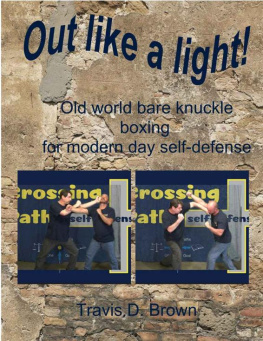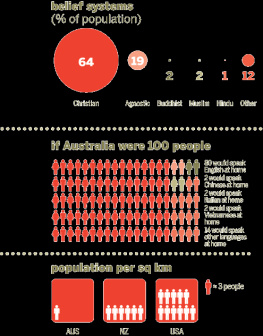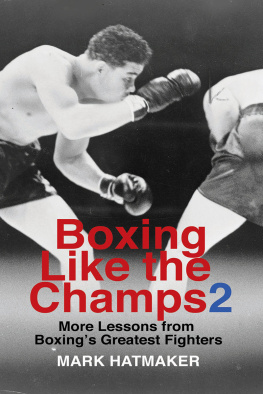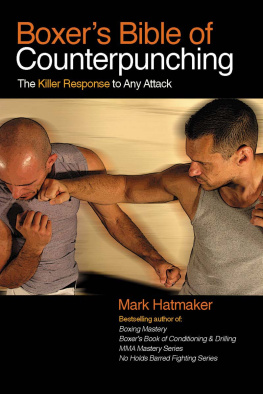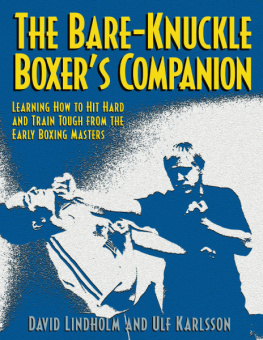To all the true students of the martial arts. Those who tirelessly seek, study, suffer, share and debate. Not for their own glory but for the betterment of us all.
To Dale, best of friends and most loyal of students. Nothing this school has been or will be would be possible without your unfailing dedication.
And a special thanks to my mother, who Im pretty sure doesnt understand my fascination with the martial arts. In spite of this, she has never failed to support me in my pursuit of them and for that I am eternally grateful.
Part I: Doctrine
Doctrine : a codification of beliefs or a body of teachings or instructions, taught principles or positions.
The Doctrine of the Crossing Path school is based primarily upon the notion of civilian self-defense.
In the Crossing Paths system, we distinguish between 4 broad categories of potential student. While general principle is universal, each have their own unique needs and require a different approach to the combat arts :
- Soldiers
- Law enforcement officers
- Prize (competitive sport) Fighters
- Civilians
Since we are primarily concerned with civilian self-defense we will be concerning ourselves principally with the civilian point of view. So, you may be thinking, what is the difference? For starters, Civilians, in general, do not have an occupation that allows time and resources for constant combat training as part of the work day . This means that a civilians studies are often constrained by how much time and money they can free up and put towards training.
Secondly, since civilians tend to function in a world where combat is an unlikely occurrence, day to day, they are more likely to be caught unaware and unprepared when it does occur. Because of this self-defense is more likely to involve a host of negative factors that the civilian will be forced to deal with.
This makes for a defensive engagement where: surprise is likely, support is not, weapons/armor are limited and a general mismatch of size and strength exists between attacker and defender .
These factors are important to keep in mind as they provide a basis for many of the views put forward in Crossing Paths doctrine. Furthermore, doing so may help you understand why these factors disqualify many of the popular sport, military or professional styles of combat from contention for the average civilians self-defense. Not because those methods do not work, or because we believe our system is in some way inherently better than everyone elses, but rather because these approaches are simply unsuited to the resources possessed by the average civilian student .
I know many will disagree with this based on their success in sport of even war but it is a mistake to assume that what works well in one arena will automatically translate just as well to another. While it is true that the fundamental principles of combat can be extracted from any solid system, how you train, your actual methods and the amount of emphasis you place on a given approach to combat can and should vary according to your specific needs.
Remember, systems are shaped by their intended use and environment .
As a civilian your goals and resources are just different from the military, law enforcement or sport fighter community . Put in perspective, your goals should shape how you fight and as a civilian: you don't have to take and hold anything, you don't have to win points or capture the bad guy. Your goal is survival, plain and simple, and while this gives you more options for " winning " than your typical military, law enforcement, sport fighter or any other professional combatant it can, and often does, handicap you in other ways.
Some of the key differences lie in:
Reduced Awareness : while military, law enforcement and sport fighters often deal with a higher mean level of actual threat/competition they also have the advantage of knowing they are preparing for a fight that is likely to happen on any given day. While this doesn't preclude them from being ambushed it does mean they are typically better prepared and that their response is often quicker as they are well aware of the possibility, for immediate violence. In contrast, a civilians threat level, while less likely overall, is constant. The combination of a constant but simultaneously unlikely threat often leads to apathy and a general lack of awareness which in turn leads to a disregard for proper security protocol among civilians.
Support : Civilians cannot count on getting any help . They cannot call on additional firepower or support, as with soldiers or law enforcement. Furthermore, any people traveling with a civilian are more likely to be untrained liabilities, whose presence often makes a situation more difficult to control. In contrast military and law enforcement have with them, or can call, trained persons capable of backing them up in a beneficial manner. Sport fighters get around this need all together by having an opponent who agrees to meet on equal terms at the onset
Weapons and Armor : both Law and pragmatism greatly limits what the civilian can carry day to day in terms of proper weapons and armor. In addition, the need to conceal any armor or weapons, for the sake of legal compliance and social pressure, insures that a civilians weapon deployment will almost always be slower and their armor less complete and/or resistant than that of a professional in the same situation.
Hesitation : uncertainty of threat and whether the use of force is justified is greater for a civilian. Often the need to give strangers the benefit of the doubt allows threats to get well within the civilians ideal defensive distance before defensive action can be adequately justified. As such a civilian, often doesn't have the luxury of using distance to its full advantage. This naturally leads to requiring a system which is proficient at closer ranges .
Side note : While none of these issues are exclusive to civilians. They tend to have a greater impact on civilians due to a lack of training and experience. This lack of experience often leads to decisions being made too late to be viable.
Conversely, Civilian self-defense does have a few key advantages over military, law enforcement and sport combative systems:
What constitutes a win? Civilians are not burdened with the duties of a military or law enforcement officer, you are not bound by any obligation to keep the peace or defend the country. You do not have to take objectives or destroy enemies, you do not have to contain bad situations or capture criminals. Unlike sport fighters you do not have to win points, knock out an opponent or force them to submit. As a civilian, you simply have to survive and as such, you can avoid, negotiate, fight, run and/or hide in any manner that achieves that goal.
Travel : By the very nature of their jobs military personnel have to go into war zones, law enforcement officers have to interact with criminals and sport fighters have to enter into arenas where a fight is certain. Civilians don't and a big part of self-defense is knowing, understanding and applying that simple concept to daily life. In short, if you stay away from bad people and out of bad places you go a long way towards not finding yourself in a bad situation.

